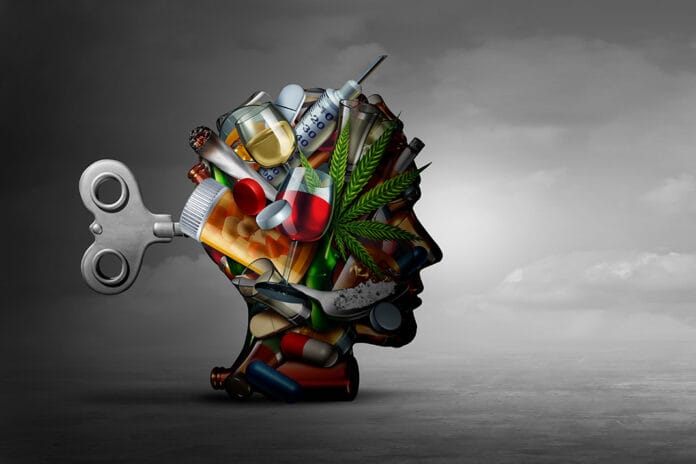In Norway, dental treatment is run by the Public Dental Service (PDS) and is free for children, adolescents, and young adults until age 19. Anyone who has a documented mental disorder, developmental disability, the geriatric population, and people who live in assisted living or utilize at-home nursing care receive free dental care. As an extension to this rule, in 2005, Norwegian government officials decided to apply the same conditions to adults of any age who are in full-time drug rehabilitation care, under the treatment of a specialist for addictions, or under a municipal order due to drug dependence.
All other adults must pay for their dental care and related services.
Even though dental care is free for many drug users in Norway, the benefit is underutilized just as it is in any other first-world country. There are several universal truths when it comes to people who are addicted to drugs and their desire for health and dental care, as outlined in the study: Dental Care for Drug Users in Norway: Dental Professionals’ Attitudes to Treatment and Experiences with Interprofessional Collaboration.
Why Do Drug Users Avoid Dental Care?
This may seem like a silly question, one that you may have learned the answer to early in your dental education, but why is it, exactly, that keeps repetitive drug users from seeking dental help?
First, drug users have a high rate of neglecting all parts of their healthcare equally, though dental care can be more evident to the public when hygiene is routinely lacking. Many times, as we know, our smiles may be the first thing someone sees. People can make their decisions on how much they like us, trust us, and want to be around us based on our dental hygiene. Dental neglect and abuse are front and center on your face and can be a source of great shame and embarrassment for many of our patients.
Many times, drugs can mask any pain the body is feeling to warn you of an injury or problem. Many people, especially in the depths of their addiction, may not even notice when a problem arises. At the same time, someone who abuses drugs may have such low self-esteem that fixing their problems seems like a waste of time and money.
Also, people who find themselves addicted may miss appointments if they remember to make them and usually cannot afford the treatments that they need if paying for such treatments is expected. Then, of course, is the natural fear of pain, discomfort, and judgment from us, the people who want to help, increase their anxiety and keep them far away from our chairs. They tend not to complete the recommended preventative care, no matter how much we try to convince them.
Dental Care for People with Addictions in Norway
Like many countries in Norway, dental health professionals and medical professionals do not have a dialogue, disallowing collaboration on a well-rounded treatment plan. Researchers have become interested in how people with addictions are seen and understood by hygienists and dental specialists.
Norwegian researchers sent questionnaires to all dental professionals in three counties in Eastern Norway with responses from 65% of dental specialists and 95% of hygienists. The study intends to gauge how we, as professionals, view and treat drug users, in general, to see if our opinions, actions, or inactions affect their treatments and general well-being.
Here is what they discovered:
- Most responses indicated that very few drug users seek dental help or continue with preventative treatments. Some responses were left out of the study because the dentist or hygienist in question had never worked on someone who was identified as a heavy drug user.
- Hygienists have to spend more time with avid drug users during appointments, giving them less time with other patients throughout the day. Their appointments were much longer, and the work done by the dental professionals was more invasive than usual during routine appointments.
- The appointments for these patients were also longer due to problems with communication and our ability, or inability, to motivate their self-care.
- Dentists, in general, spend more time with these patients than hygienists do due to the serious problems that need to be addressed.
- Missed appointments and heightened anxiety, even beyond the norm of average dental anxiety, including paranoia, for example, are evident in almost every patient identified as a routine drug user.
- The more experience a dentist and a hygienist has with avid drug users increases their effectiveness in the chair. Experience is the mother of invention, and the more you practice speaking to these patients and learning how to communicate with them, the more apt they are to listen to what you have to say and practice what you’ve preached.
- A vast majority of the questioned Norwegian dentists and hygienists believe that helping with the cost, or completely covering the cost of care, greatly influences the success rate of their patients and helps encourage them to keep coming back. It is necessary to maintain the current status of payment support sanctioned by the government.
The researchers found that drug users are considered “demanding patients” simply because of all the care and attention that they need and the time that can seem wasted in hindsight when they fail to show up for their appointments or fail to follow our at-home care instructions.
It was also discovered that the value of a person’s care was also based upon the dentist’s or hygienist’s personal opinions and past experiences with avid drug users. While we cannot tangibly affect a person’s drug use, we can look at our own biases, if they exist, and alter our approach accordingly. Access to appropriate care, communication between caregivers, and reliable cost measures can help many of our patients who suffer from addiction.










